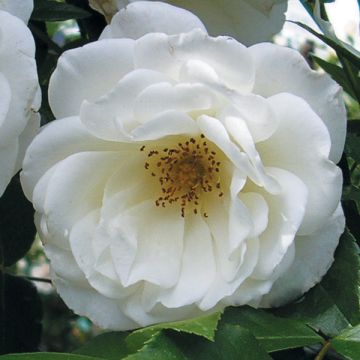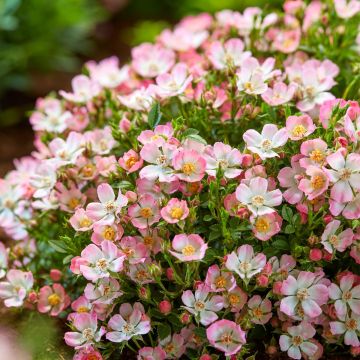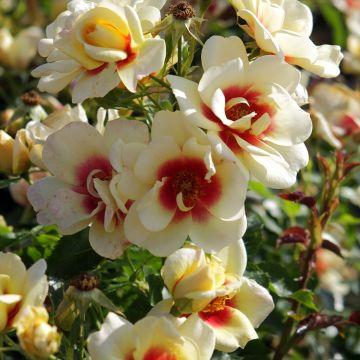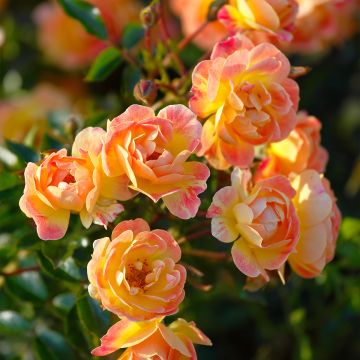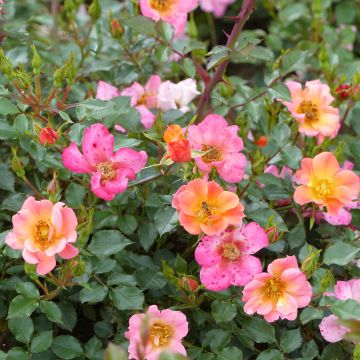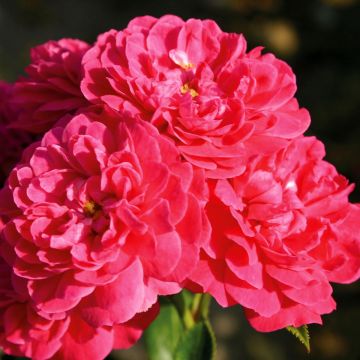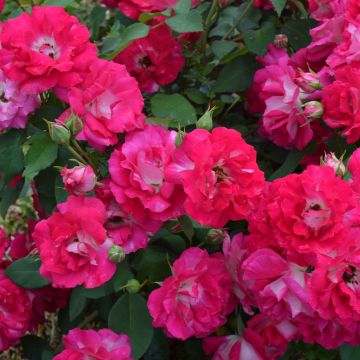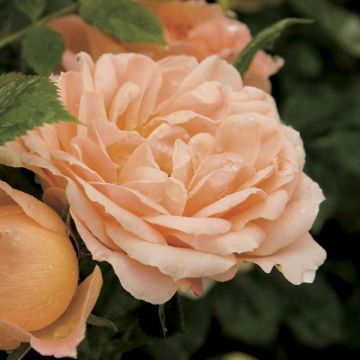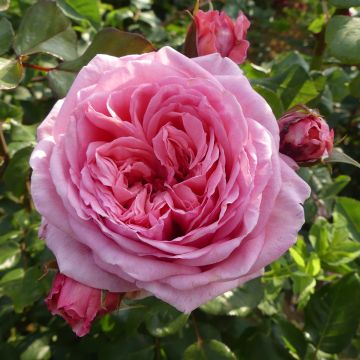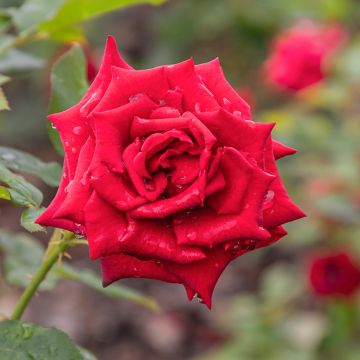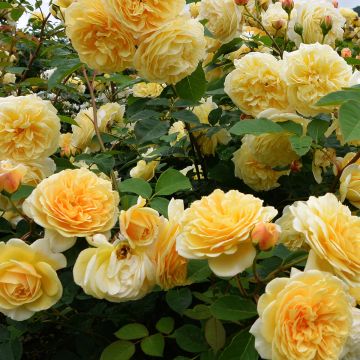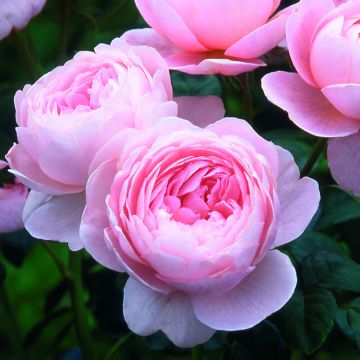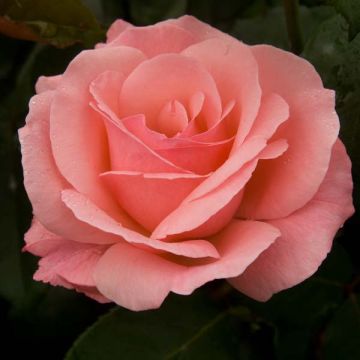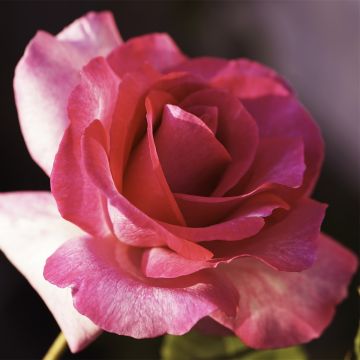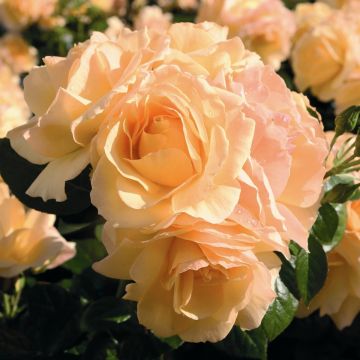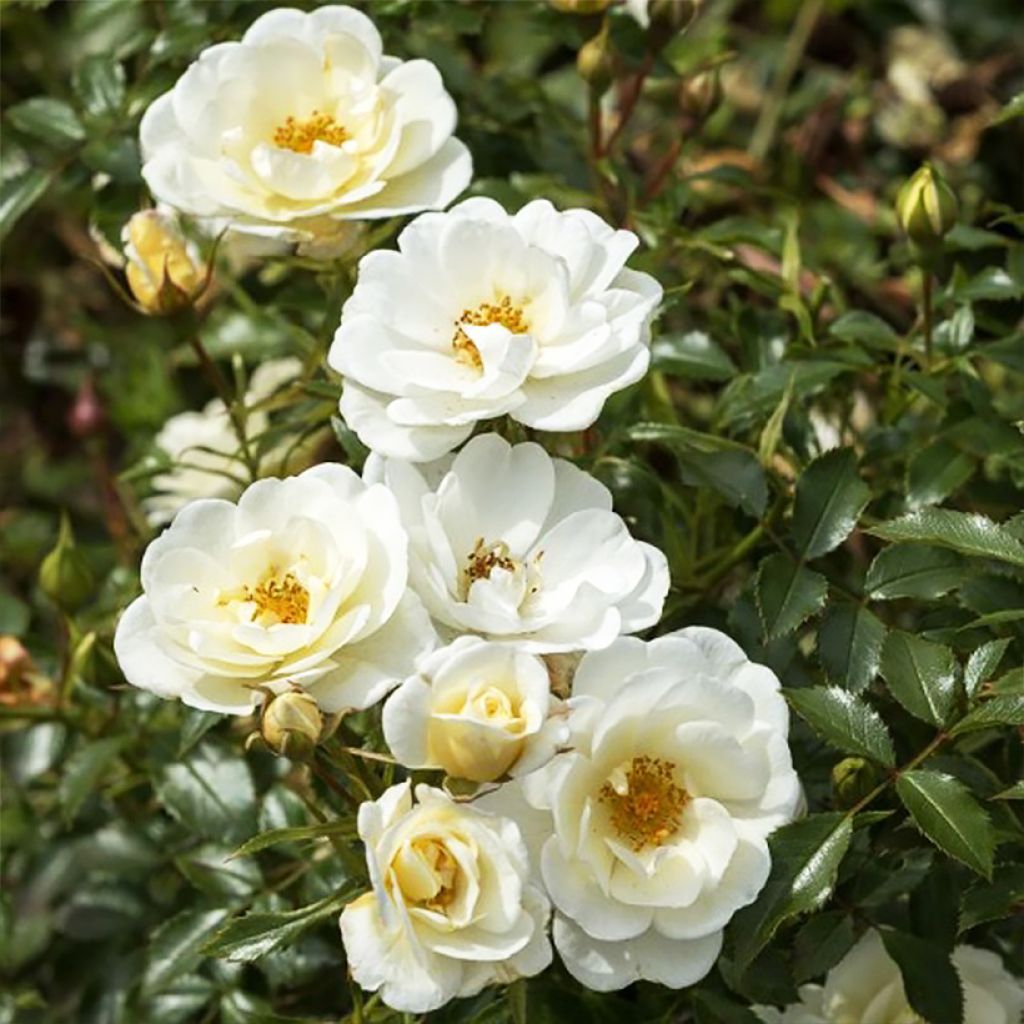

Rosier à fleurs groupées Bienenweide Ivory
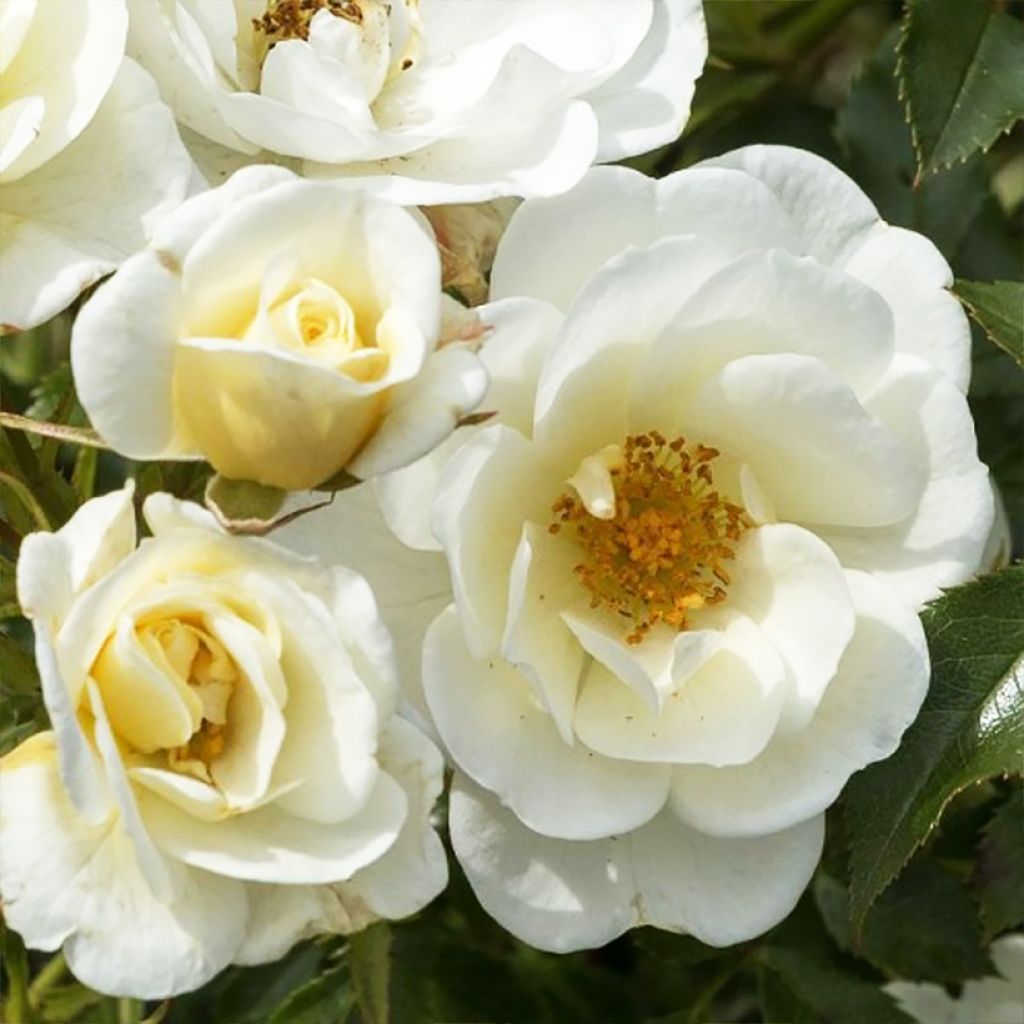

Rosier à fleurs groupées Bienenweide Ivory
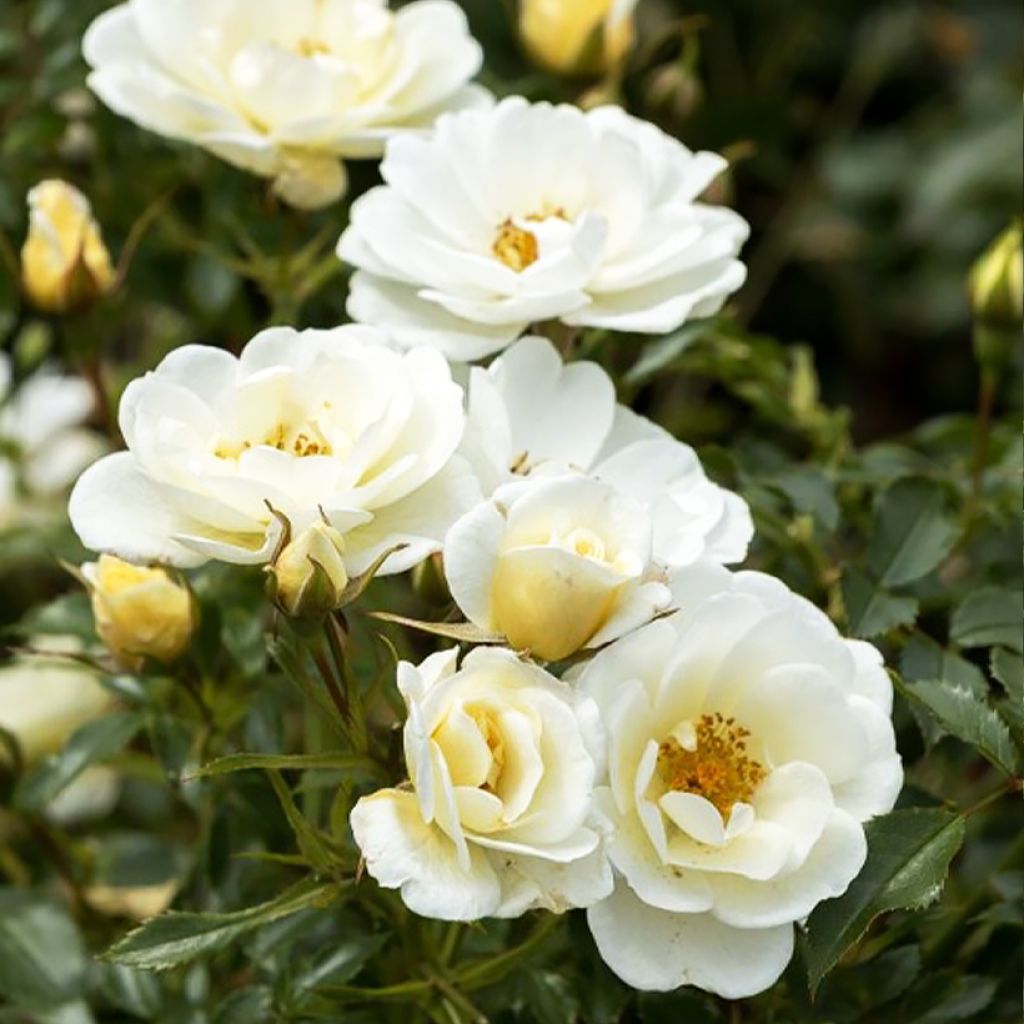

Rosier à fleurs groupées Bienenweide Ivory
Rosa Bees Paradise Ivory - patio rose
Rosa x polyantha Bees Paradise® Ivory (Bienenweide)
polyantha rose, patio rose
Thanks to the individuals (for order preparation and shipping), the rose bush I received appears to be healthy. Planted at the edge, I am now patiently waiting for it to take root... or not?" Texte révisé : "Thanks to the individuals (for order preparation and shipping), the rose bush I received appears to be in good health. Planted at the edge, I am now patiently waiting for it to take root... or not?
Thierry, 23/09/2023
Special offer!
Receive a €20 voucher for any order over €90 (excluding delivery costs, credit notes, and plastic-free options)!
1- Add your favorite plants to your cart.
2- Once you have reached €90, confirm your order (you can even choose the delivery date!).
3- As soon as your order is shipped, you will receive an email containing your voucher code, valid for 3 months (90 days).
Your voucher is unique and can only be used once, for any order with a minimum value of €20, excluding delivery costs.
Can be combined with other current offers, non-divisible and non-refundable.
Why not try an alternative variety in stock?
View all →This plant carries a 6 months recovery warranty
More information
We guarantee the quality of our plants for a full growing cycle, and will replace at our expense any plant that fails to recover under normal climatic and planting conditions.
Description
Rosa Bees Paradise Ivory, with its beautiful ivory white flowers, adds to this lovely collection of compact roses developed by the German rose breeder Tantau to attract and nourish bees. It is interesting for its generous and perpetual flowering, as well as its natural disease-resistance, which is well above average. Forming beautiful, easy-to-care-for flowering cushions, all Bees Paradise have a large, easily accessible heart of pollen-rich stamens. Their small size allows them to be grown in gardens of all sizes and styles, or in pots on a balcony or terrace.
The flowers of Rosa Bees Paradise Ivory are gathered in small terminal clusters, inherited from the polyantha rose, an old hybrid derived from Rosa multiflora and R. chinensis. They are particularly rich in nectar and pollen. It forms a low, well-branched bush, about 50 cm (20in) high and 60 cm (24in) wide. The flowers are semi-double cups, 2 to 4 cm (1 to 2in) in diameter, composed of 5 to 10 ivory white petals and a golden yellow stamen-filled heart. Flowering starts in June and regularly renews until October. With the Bees Paradise roses, the faded flowers fall off on their own, without the need for deadheading. Flowering will slow down if the soil is too dry in summer, but will resume in September. This variety has very dark, glossy, deciduous, disease-resistant foliage that falls in autumn.
Rosa Bees Paradise Ivory is robust and hardy and will grow in all soils that are not too dry, but prefers fertile and deep soils. Its dense and low habit allows it to be used in large borders, in not too dry rockeries or on slopes. It can also be planted in groups of 5 in the centre of a small flowerbed. Plant it en masse along a pathway or to highlight shrub beds. It pairs well with light or opulent perennials, or with other dwarf roses from the Bees Paradise series, the 'Bordure Blanche' rose, or the 'Bordure vive' rose. It can be grown with perennial geraniums (Geranium Blue Cloud, Anne Folkard, Nimbus, Orion, Rozanne), bellflowers (lactiflora, rapunculoides), catmints, snapdragons, foxgloves, or carnations. It is perfect for decorating the terrace or balcony in a beautiful pot or a large planter.
Bred by Tantau (Germany) in 2021.
Report an error about the product description
Rosa Bees Paradise Ivory - patio rose in pictures
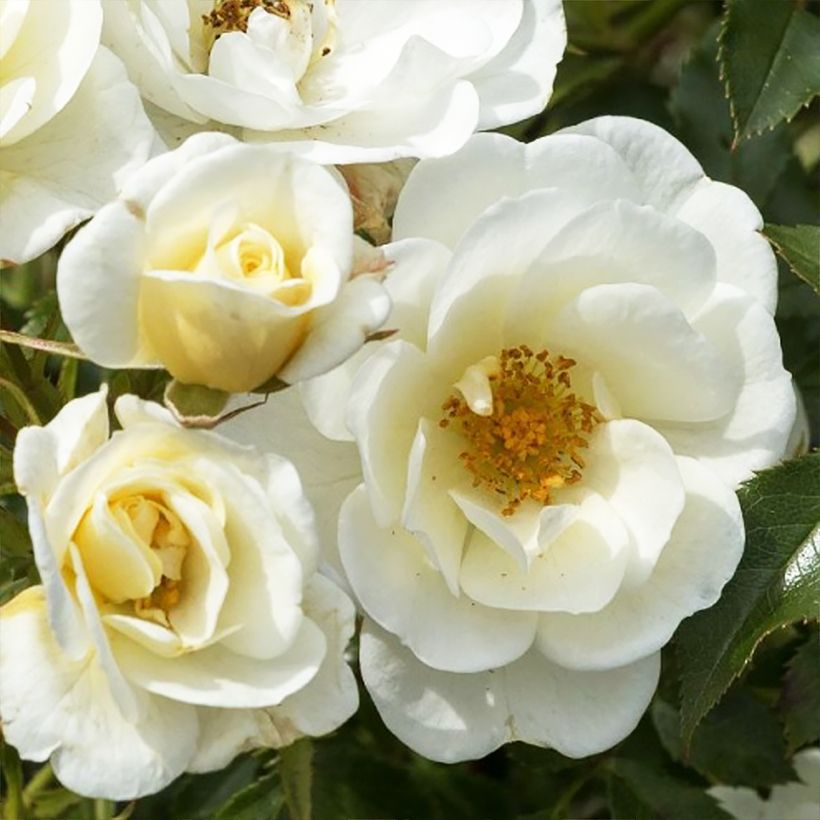

Plant habit
Flowering
Foliage
Botanical data
Rosa
x polyantha
Bees Paradise® Ivory (Bienenweide)
Rosaceae
polyantha rose, patio rose
Cultivar or hybrid
Planting and care
Bees Paradise Ivory roses prefer a sunny location (at least 4 to 5 hours of sun per day) but sheltered from the scorching midday rays and strong winds. They like loose, permeable, deep, and fertile soil. They prefer neutral to slightly acidic soil but will grow in any garden as long as the soil is well-worked and sufficiently rich. To plant your rose, dig the soil to a depth of 25 cm (10in), breaking up the soil well and place a base fertiliser such as bonemeal in the bottom of the hole, remove your rose from its pot and position covering the top of the root ball with 3 cm (1in) of soil, fill in and water thoroughly to eliminate air pockets. In dry weather, regular watering is necessary for a few weeks to aid root establishment. Provide your rose with special rose fertiliser to stimulate plant flowering.
Planting period
Intended location
Care
-
, onOrder confirmed
Reply from on Promesse de fleurs
Similar products
Haven't found what you were looking for?
Hardiness is the lowest winter temperature a plant can endure without suffering serious damage or even dying. However, hardiness is affected by location (a sheltered area, such as a patio), protection (winter cover) and soil type (hardiness is improved by well-drained soil).

Photo Sharing Terms & Conditions
In order to encourage gardeners to interact and share their experiences, Promesse de fleurs offers various media enabling content to be uploaded onto its Site - in particular via the ‘Photo sharing’ module.
The User agrees to refrain from:
- Posting any content that is illegal, prejudicial, insulting, racist, inciteful to hatred, revisionist, contrary to public decency, that infringes on privacy or on the privacy rights of third parties, in particular the publicity rights of persons and goods, intellectual property rights, or the right to privacy.
- Submitting content on behalf of a third party;
- Impersonate the identity of a third party and/or publish any personal information about a third party;
In general, the User undertakes to refrain from any unethical behaviour.
All Content (in particular text, comments, files, images, photos, videos, creative works, etc.), which may be subject to property or intellectual property rights, image or other private rights, shall remain the property of the User, subject to the limited rights granted by the terms of the licence granted by Promesse de fleurs as stated below. Users are at liberty to publish or not to publish such Content on the Site, notably via the ‘Photo Sharing’ facility, and accept that this Content shall be made public and freely accessible, notably on the Internet.
Users further acknowledge, undertake to have ,and guarantee that they hold all necessary rights and permissions to publish such material on the Site, in particular with regard to the legislation in force pertaining to any privacy, property, intellectual property, image, or contractual rights, or rights of any other nature. By publishing such Content on the Site, Users acknowledge accepting full liability as publishers of the Content within the meaning of the law, and grant Promesse de fleurs, free of charge, an inclusive, worldwide licence for the said Content for the entire duration of its publication, including all reproduction, representation, up/downloading, displaying, performing, transmission, and storage rights.
Users also grant permission for their name to be linked to the Content and accept that this link may not always be made available.
By engaging in posting material, Users consent to their Content becoming automatically accessible on the Internet, in particular on other sites and/or blogs and/or web pages of the Promesse de fleurs site, including in particular social pages and the Promesse de fleurs catalogue.
Users may secure the removal of entrusted content free of charge by issuing a simple request via our contact form.
The flowering period indicated on our website applies to countries and regions located in USDA zone 8 (France, the United Kingdom, Ireland, the Netherlands, etc.)
It will vary according to where you live:
- In zones 9 to 10 (Italy, Spain, Greece, etc.), flowering will occur about 2 to 4 weeks earlier.
- In zones 6 to 7 (Germany, Poland, Slovenia, and lower mountainous regions), flowering will be delayed by 2 to 3 weeks.
- In zone 5 (Central Europe, Scandinavia), blooming will be delayed by 3 to 5 weeks.
In temperate climates, pruning of spring-flowering shrubs (forsythia, spireas, etc.) should be done just after flowering.
Pruning of summer-flowering shrubs (Indian Lilac, Perovskia, etc.) can be done in winter or spring.
In cold regions as well as with frost-sensitive plants, avoid pruning too early when severe frosts may still occur.
The planting period indicated on our website applies to countries and regions located in USDA zone 8 (France, United Kingdom, Ireland, Netherlands).
It will vary according to where you live:
- In Mediterranean zones (Marseille, Madrid, Milan, etc.), autumn and winter are the best planting periods.
- In continental zones (Strasbourg, Munich, Vienna, etc.), delay planting by 2 to 3 weeks in spring and bring it forward by 2 to 4 weeks in autumn.
- In mountainous regions (the Alps, Pyrenees, Carpathians, etc.), it is best to plant in late spring (May-June) or late summer (August-September).
The harvesting period indicated on our website applies to countries and regions in USDA zone 8 (France, England, Ireland, the Netherlands).
In colder areas (Scandinavia, Poland, Austria...) fruit and vegetable harvests are likely to be delayed by 3-4 weeks.
In warmer areas (Italy, Spain, Greece, etc.), harvesting will probably take place earlier, depending on weather conditions.
The sowing periods indicated on our website apply to countries and regions within USDA Zone 8 (France, UK, Ireland, Netherlands).
In colder areas (Scandinavia, Poland, Austria...), delay any outdoor sowing by 3-4 weeks, or sow under glass.
In warmer climes (Italy, Spain, Greece, etc.), bring outdoor sowing forward by a few weeks.






























